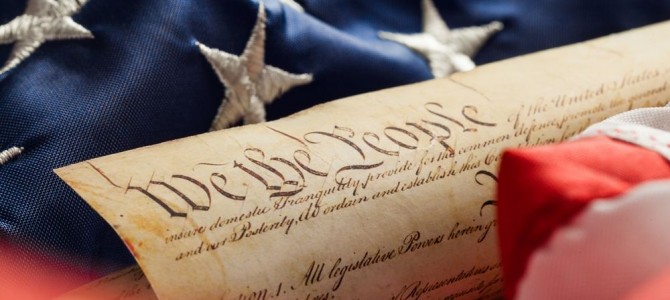
On the national lockdown loosening in some states and stubbornly persisting in others, Americans are very much of two minds. For some, including most of the media, it is an inconvenience, but a righteous one that saves lives. For others, often with smaller megaphones, it is a powerfully destructive force economically and socially. But we should be able to agree that, whether justified or not, the lockdown has been a massive infringement on Americans’ basic rights.
At least since women received the right to vote there has been no time when so many Americans have had so many basic rights limited by the government. Yes, millions have been drafted, during World War II the entire country was made to ration goods, and there have been horrible incidents like Japanese internment. But never have the vast majority of Americans — hundreds of millions of people — had so many rights stripped for so extended a time with no end in sight.
Let’s look down the list of rights that are currently being denied by the state to the vast majority of Americans. Most may not leave their houses except for essential travel. Most may not operate their businesses. Most may not attend church or host even small gatherings in their homes. Most may not receive even potentially life-saving medical procedures such as cancer screenings. Whether one supports or opposes the lockdown, this deprivation of rights in unprecedented in modern American history.
America was founded on the principle that God gives us inalienable rights, specifically to life, liberty, and the pursuit of happiness. State-imposed shutdowns of basic medical services threaten life. Restrictions on travel and what we may do in our homes threaten liberty. Banning all gatherings such as church, entertainment, social gatherings, and sports threatens happiness. The lockdown hits the trifecta.
Those in favor of the state-mandated restriction of rights argue that it is only temporary and is needed because of the grave medical emergency we face. Even though many, including Attorney General William Barr, have expressed serious doubts as to whether a pandemic supersedes the Constitution, let’s stipulate for the sake of argument that it does and see where this idea takes us.
The first thing to note is that this unprecedented attack on basic rights is open ended. Many believe that at least some of these restrictions must stay in place until the Chinese virus is no longer with us. This may never happen. Will “the new normal” be one in which we sacrifice freedom for safety? And if so, what is the limiting principle?
For that matter, what constitutes a public health crisis sufficiently deadly to “temporarily” suspend people’s rights? In 2017, about 40,000 people were killed in incidents involving guns. To date, about 70,000 people have died from coronavirus. These figures are not wildly different. If the state may take such drastic measures to deny Americans rights during the pandemic, why couldn’t tens of thousands of gun-related deaths qualify as a public health crisis that supersedes the Second Amendment and leads to gun confiscation? Where is the line between these causes of death?
What about free speech? Surely nobody would suggest that this most basic and precious liberty be a casualty of the Chinese pandemic — or would they? In The Atlantic, Jack Goldsmith and Adam Keane Woods have this to say” “In the great debate of the past two decades about freedom versus control of the [Internet] network, China was largely right and the United States was largely wrong. Significant monitoring and speech control are inevitable components of a mature and flourishing Internet, and governments must play a large role in these practices to ensure that the Internet is compatible with a society’s norms and values.” Yikes!
The longer this lockdown goes on, the more accustomed Americans become to a deprivation of their God-given rights by the state in the name of saving lives, and the flimsier the parchment of the Constitution becomes. Governments always have “good reasons” for denying rights. Nobody ever says, “I just want to be an awful fascist.” There’s always a threat, usually a very serious one, that supposedly justifies such illiberal actions.
Beyond the death, sickness, economic ruin, and inconvenience of this crisis, we must also be jealously guarding the rights protected by our founding. We do this not merely to defend the liberties that have been bequeathed to us, but protect them for those to whom we must pass them.
These are not esoteric, ivory tower constitutional questions; they literally strike at the birthright of every American. They must not be waived away under the pretense of an emergency situation. The government does not grant us rights, it protects them. Right now, all of us have decisions to make about how much freedom is too much freedom. On this question, we must never err on the side of caution, but always on the side of liberty.









